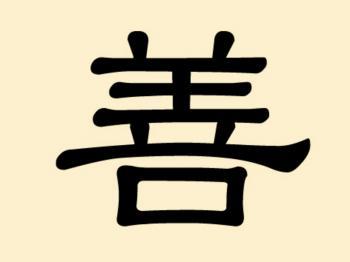Over the last seventeen years China’s state-owned assets have lost 12 trillion yuan (approximately US$1.8 trillion), which is more than 30 percent of China’s 2009 GDP, and is equivalent to the income of eight hundred million rural residents for four years and two months, according to an official report.
Hong Kong’s Chengming magazine reported that according to incomplete statistics from a joint investigation by the State Council’s Development Research Center and the State-owned Assets Supervision and Administration Commission, from 1993 to 2009 over 12 trillion yuan in state-owned assets has flowed directly into the pockets of the regime’s high level officials and bureaucrats-cum-capitalists.
According to the report, assets were lost when state-owned enterprises were deliberately underestimated during the selling and transfer process. The price of some tangible assets was set at less than five percent of their original price.
Some mines evaluated as abandoned were sold or transferred at only about ten or even two percent of their actual value. In early 2000, Shanxi Province and Hubei Province sold and transferred over 3,750 coal mines that had an annual output of less than 50,000 tons. The actual market value should have been more than five trillion yuan (US$0.76 trillion), but they were sold at lower than one fiftieth of the market value.
Although China’s constitution claims that state-owned assets belong to all people, the profits from such activities flow directly into the pockets of Party bureaucrats at all levels. Their methods for embezzling, laundering, and dividing the money are numerous and sophisticated.
The report divides them into four categories: former Party and state officials directly getting into enterprises and assuming the roles of leaders or senior executives; embezzlement from within government organizations; Party and state officials’ relatives becoming owners of large private businesses in a connected industry; having Party bureaucrats become senior executives of joint-venture companies in Hong Kong or Macao.
“The underdeveloped legal system and mechanisms has caused an astronomical amount of loss of national assets and funds,” said Zhang Yutai, director of the Development Research Center, according to the report. “If we cannot rigorously stop this and make changes, no one will be able to afford this debt and it will be a national disaster.”
Read the original Chinese article.
Hong Kong’s Chengming magazine reported that according to incomplete statistics from a joint investigation by the State Council’s Development Research Center and the State-owned Assets Supervision and Administration Commission, from 1993 to 2009 over 12 trillion yuan in state-owned assets has flowed directly into the pockets of the regime’s high level officials and bureaucrats-cum-capitalists.
According to the report, assets were lost when state-owned enterprises were deliberately underestimated during the selling and transfer process. The price of some tangible assets was set at less than five percent of their original price.
Some mines evaluated as abandoned were sold or transferred at only about ten or even two percent of their actual value. In early 2000, Shanxi Province and Hubei Province sold and transferred over 3,750 coal mines that had an annual output of less than 50,000 tons. The actual market value should have been more than five trillion yuan (US$0.76 trillion), but they were sold at lower than one fiftieth of the market value.
Although China’s constitution claims that state-owned assets belong to all people, the profits from such activities flow directly into the pockets of Party bureaucrats at all levels. Their methods for embezzling, laundering, and dividing the money are numerous and sophisticated.
The report divides them into four categories: former Party and state officials directly getting into enterprises and assuming the roles of leaders or senior executives; embezzlement from within government organizations; Party and state officials’ relatives becoming owners of large private businesses in a connected industry; having Party bureaucrats become senior executives of joint-venture companies in Hong Kong or Macao.
“The underdeveloped legal system and mechanisms has caused an astronomical amount of loss of national assets and funds,” said Zhang Yutai, director of the Development Research Center, according to the report. “If we cannot rigorously stop this and make changes, no one will be able to afford this debt and it will be a national disaster.”
Read the original Chinese article.

